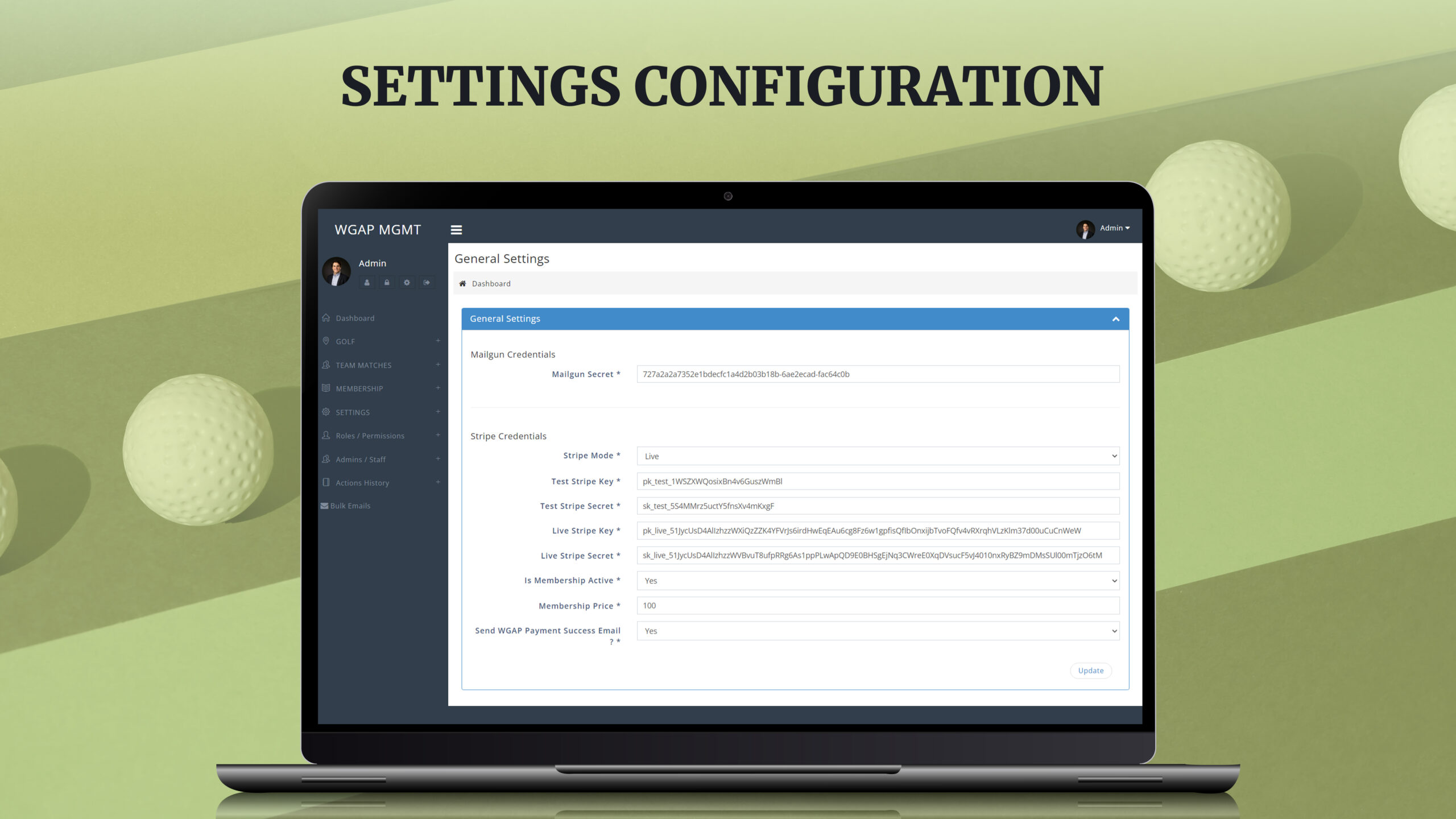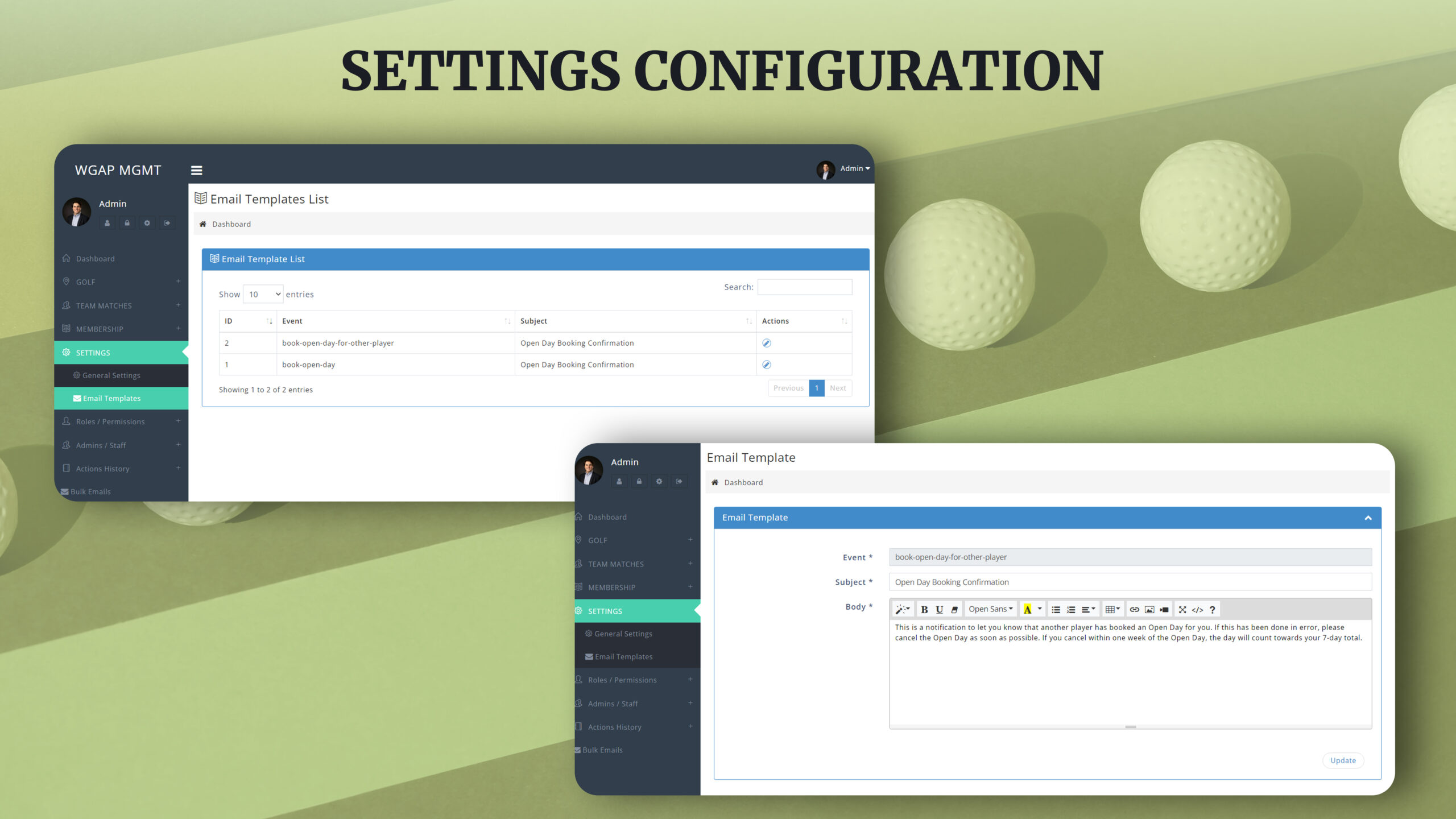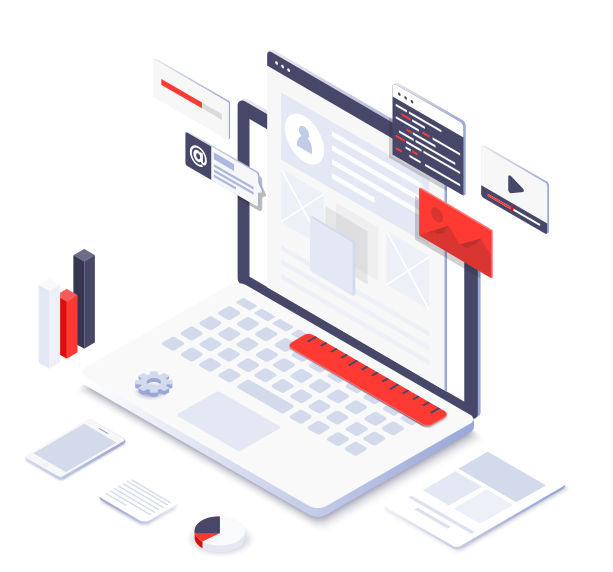Overview
Our client, the Women’s Golf Association of Philadelphia (WGAP), is the oldest women’s golf association in the United States, serving over 2,000 women golfers for more than 125 years. WGAP sought a backend solution to efficiently manage its golf operations, including golf club listings, tournaments, team matches, memberships, and payment processing. Their major concern was streamlining operations, such as email communication and match schedules.
Our team delivered a web-based backend portal built with Laravel and PHP and integrated it with Golf Genius APIs. The solution included modules for managing club listings, tournaments, team matches, memberships, and payments, complemented by robust client-focused settings, role-based access controls, and administrative tools.
This backend portal successfully enhanced the operational efficiency of WGAP, ensuring they could manage their longstanding traditions while modernizing their processes, automating daily tasks, and minimizing manual administrative workload.
Services
- Consultation & Requirement Analysis
- Design & User Experience (UI/UX)
- Backend Web Development
- Quality Assurance and Testing
- Maintenance & Support
VISIT
WEBSITETechnologies

Bootstrap

CSS
GolfGenius APIs

HTML

JavaScript

JQuery

Laravel

MySQL

PHP
- Laravel
- SugarCRM
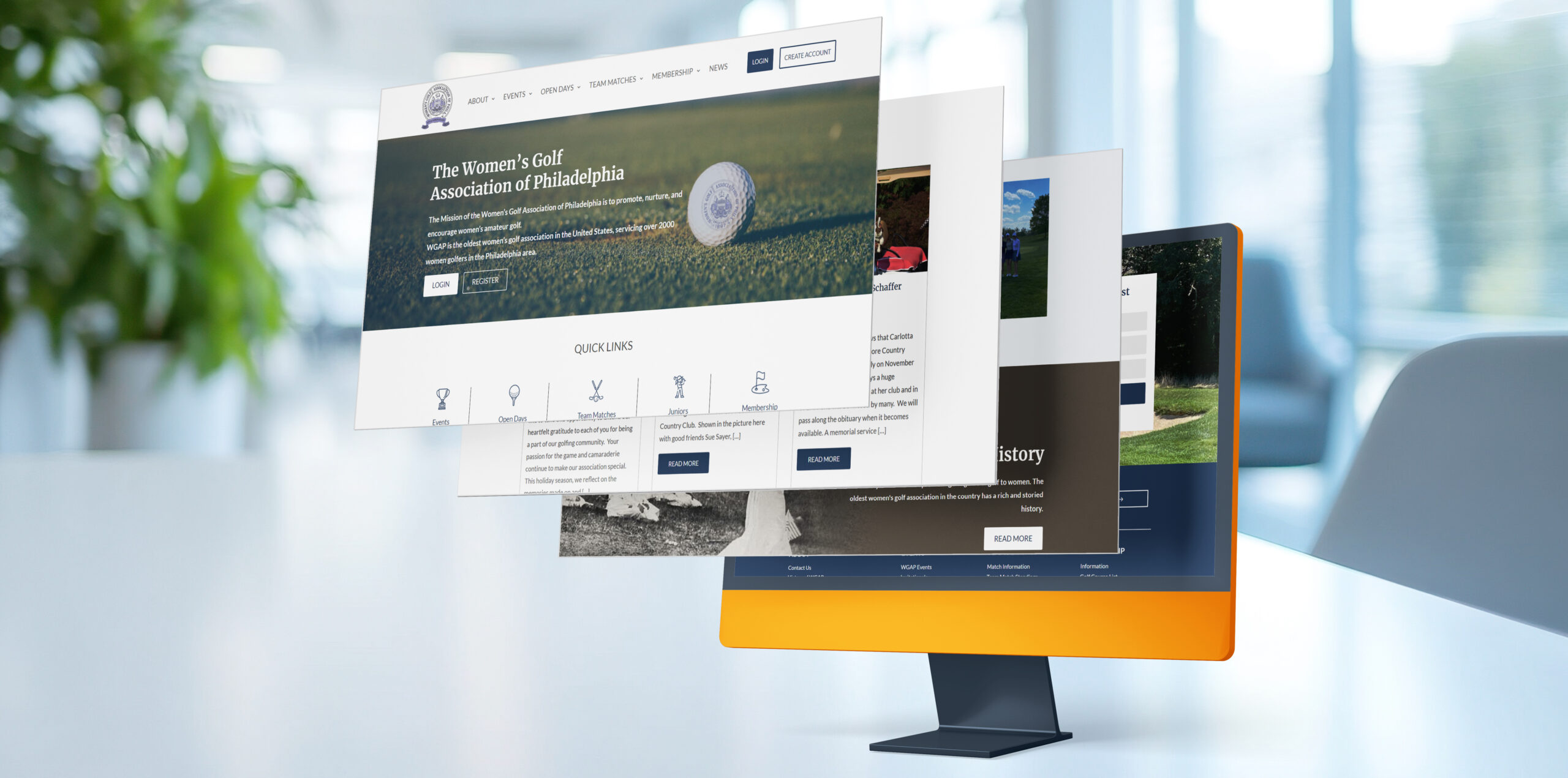
Challenges
One major obstacle was ensuring an uninterrupted data flow between WGAP’s backend system and the Golf Genius APIs they relied upon. These APIs were crucial for managing tournament details and other operations.
WGAP also required varying levels of access for different user roles, from staff to managers to executives. Sensitive areas like tournament details, team matches, and payment records required role-based access to ensure data security and operational clarity.
Another challenge was managing large datasets, particularly those related to team match schedules and scores. The sheer volume of data could easily slow down processes or overwhelm the system.
Solutions
To address this, our team developed robust API handling techniques to maintain data integrity and reliability.
We developed a robust role-based access control (RBAC) system where each user profile—whether admin, member, or super admin—was assigned a specific set of permissions matching their responsibilities. This not only safeguarded sensitive data but also simplified portal management by clearly defining the scope of each role.
Our solution was to optimize data handling from the ground up. We designed highly efficient import/export functionalities, streamlined database queries, and created frameworks that could process vast amounts of information quickly without sacrificing accuracy. This approach kept performance levels high, even under significant loads.
Key Features
Golf Club Listing and Information Management Functionality
Admins can efficiently manage golf club details by adding new clubs, updating existing information, and removing outdated entries. The club dashboard includes detailed fields like club name, location, website URL, and contact information. Admins can also import listings or use a sample import to automate operations. Comprehensive data such as course count, participant details, and contact information ensure complete and organized club records.
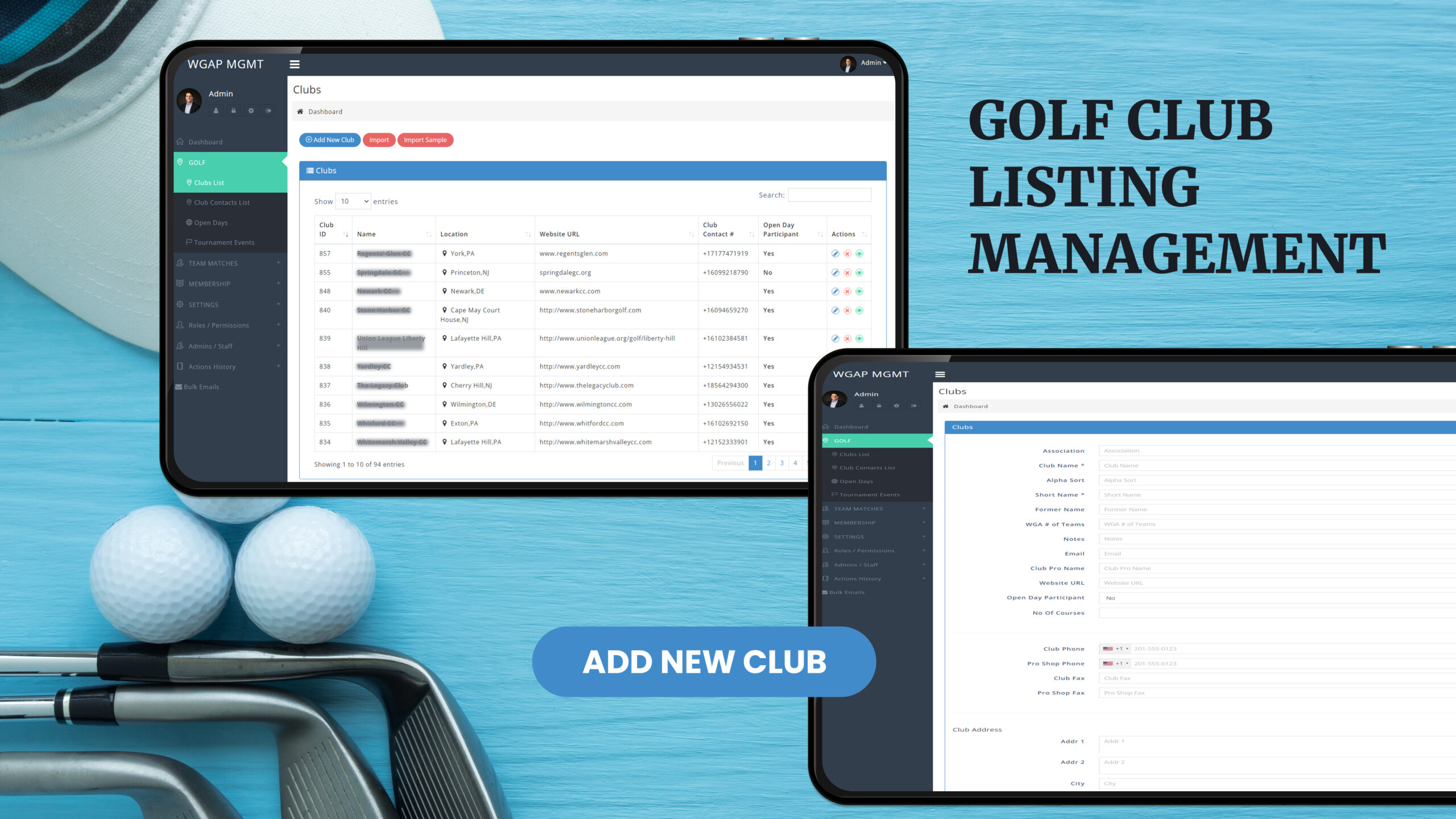
Open Days Event Management and Coordination via a Comprehensive Dashboard
We enabled admins to plan and execute open days easily with tools to add events, import tee times, and download detailed sample reports. Admins can manage schedules by specifying tee times, registration, and event status for each entry. Open-day schedules feature course numbers, day/time slots, player counts, and status updates, ensuring organized event management. CRUD functionality empowers admins to create, update, and organize open-day details accurately.
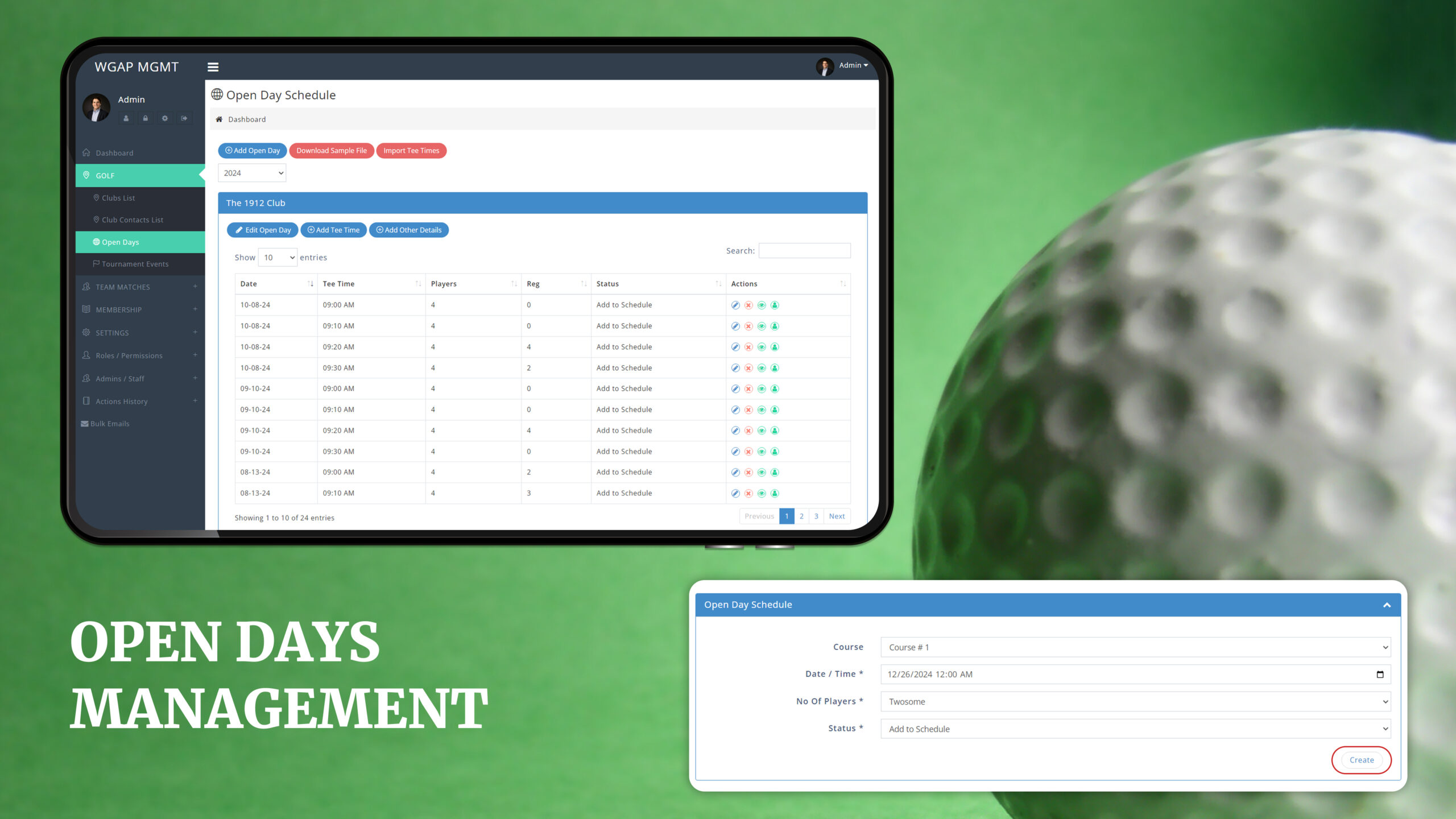
Tournament Event Management and Administration Feature
We developed this feature to simplify tournament management by offering CRUD operations for event details like dates, descriptions, and titles. The dashboard displays event data, including ID, title, associated club, and event date, along with status indicators. Admins can edit, delete, or update tournaments, ensuring accurate and timely updates for all events in the system.
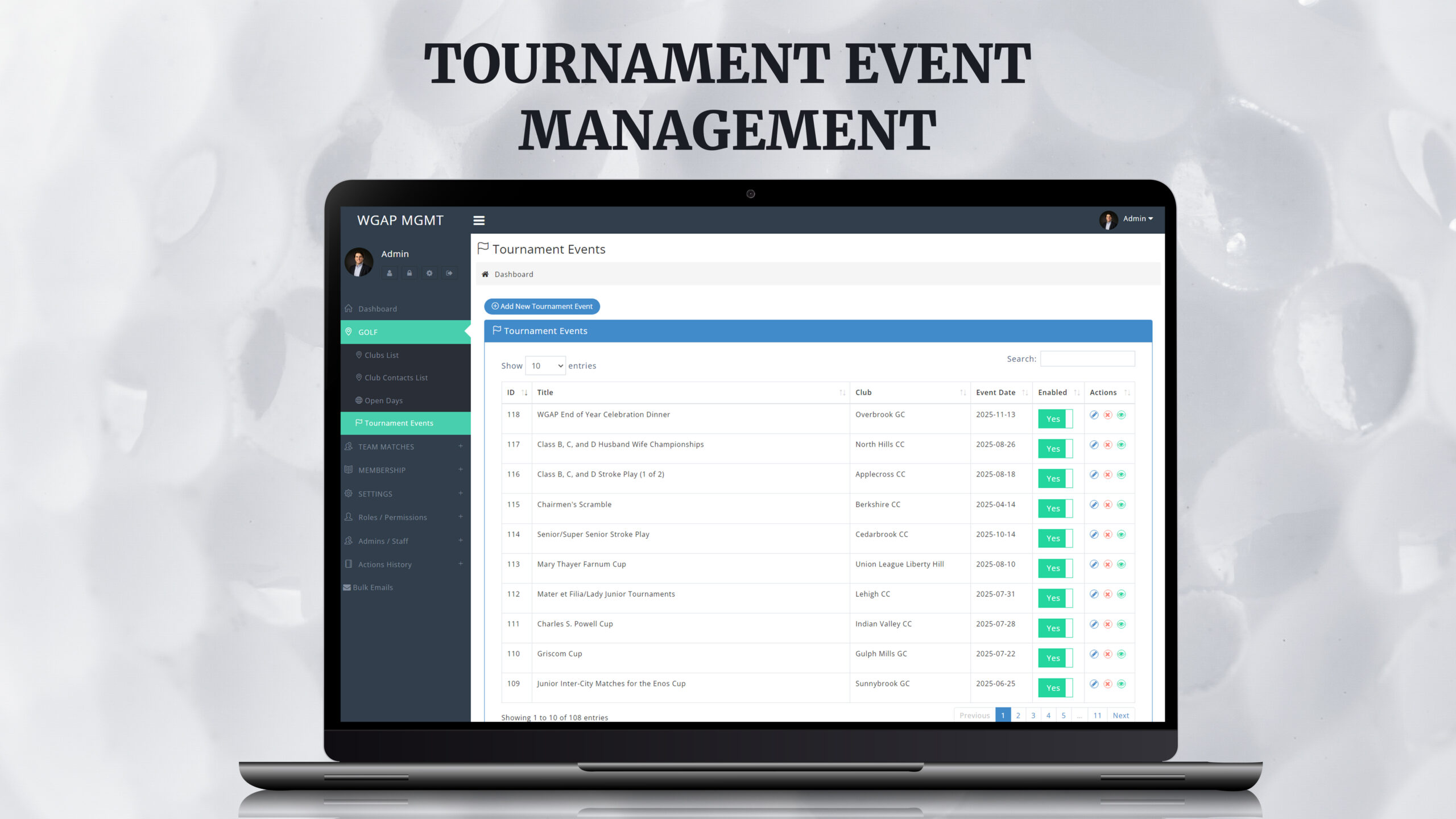
Comprehensive Team Match Scheduling and Scoring Functionality
We gave admins the ability to manage team matches by viewing schedules, editing scores, and importing data through file uploads. The module includes subtabs for full team schedules, individual match results for cups like Philadelphia and Wallingford, and a lineup registration feature. Lineup windows can be customized with specific start and end times, ensuring organized team registration. This feature streamlines all aspects of team match management, from scheduling to results.
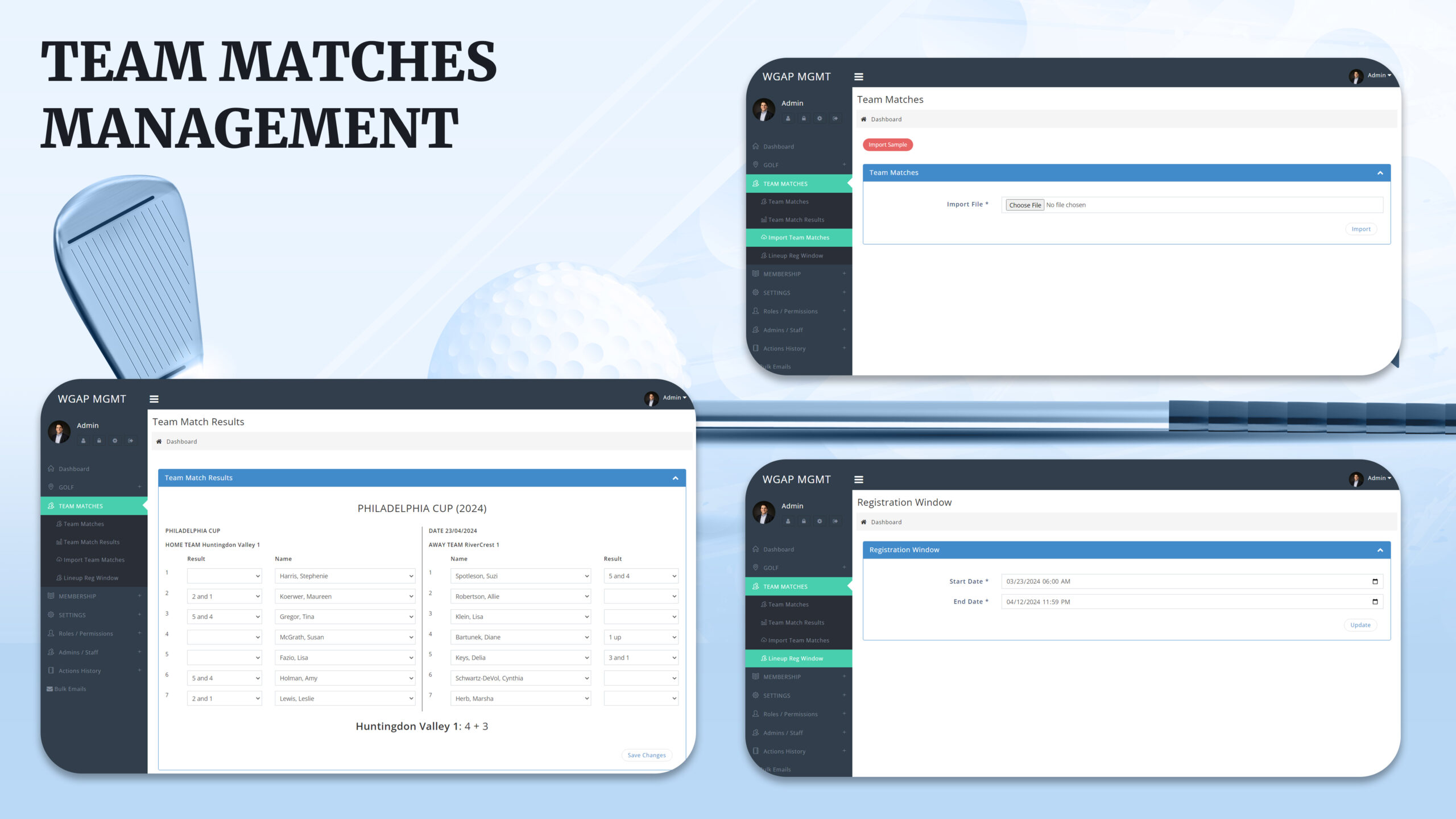
Quick and Easy Membership Handling and Payment Tracking Features
Admins can efficiently manage membership records by adding, editing, or removing entries, while also tracking payment histories. Features include importing/exporting member lists and viewing detailed data such as names, handicap information, club affiliations, and membership status. Export and sample import options make data handling quick and easy, ensuring organized and updated membership management for smooth club operations. Each member entry also comes with its detailed member profile with normal details like name, comprehensive contact details, and club affiliations to membership info and additional member-specific notes.
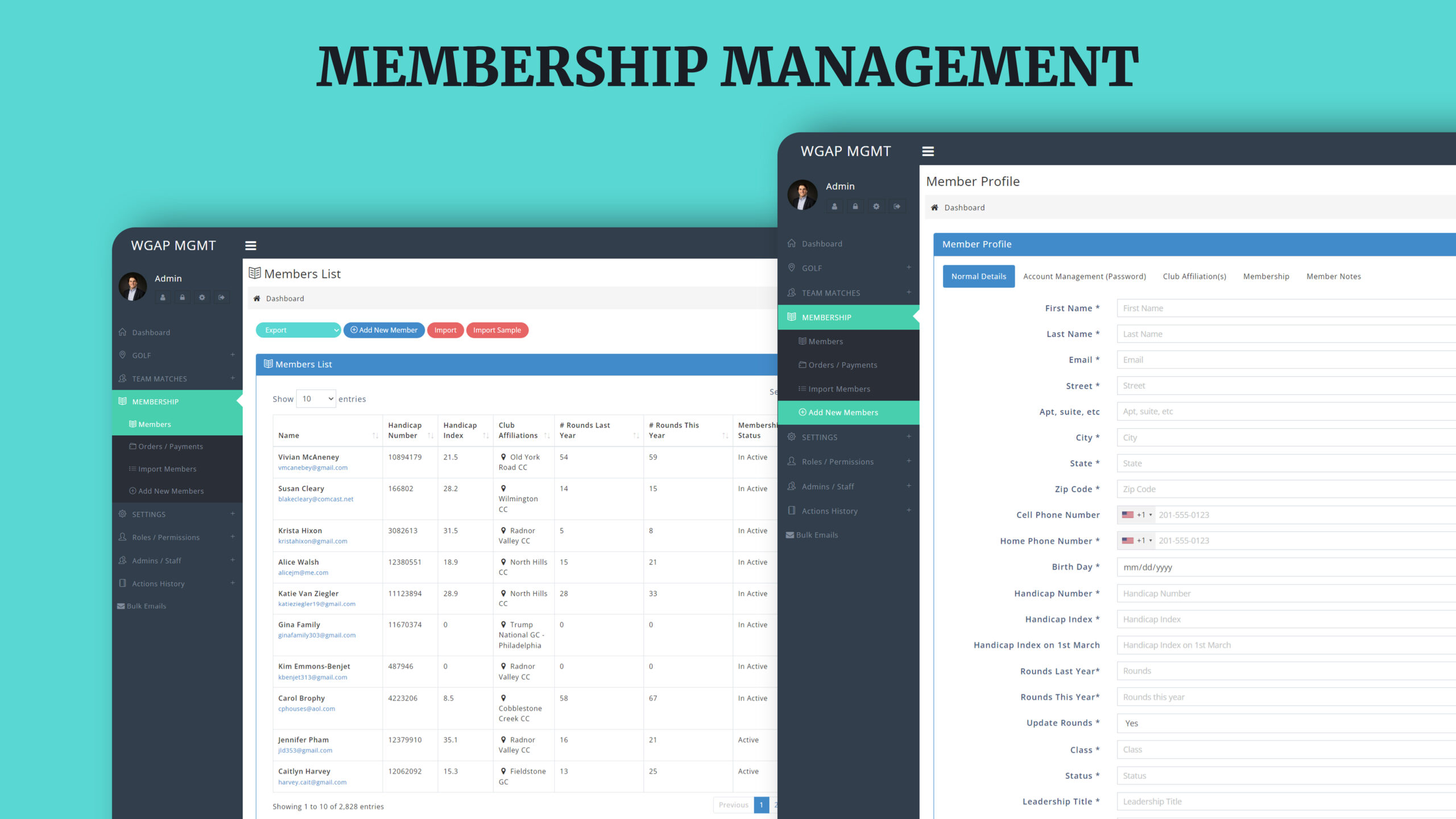
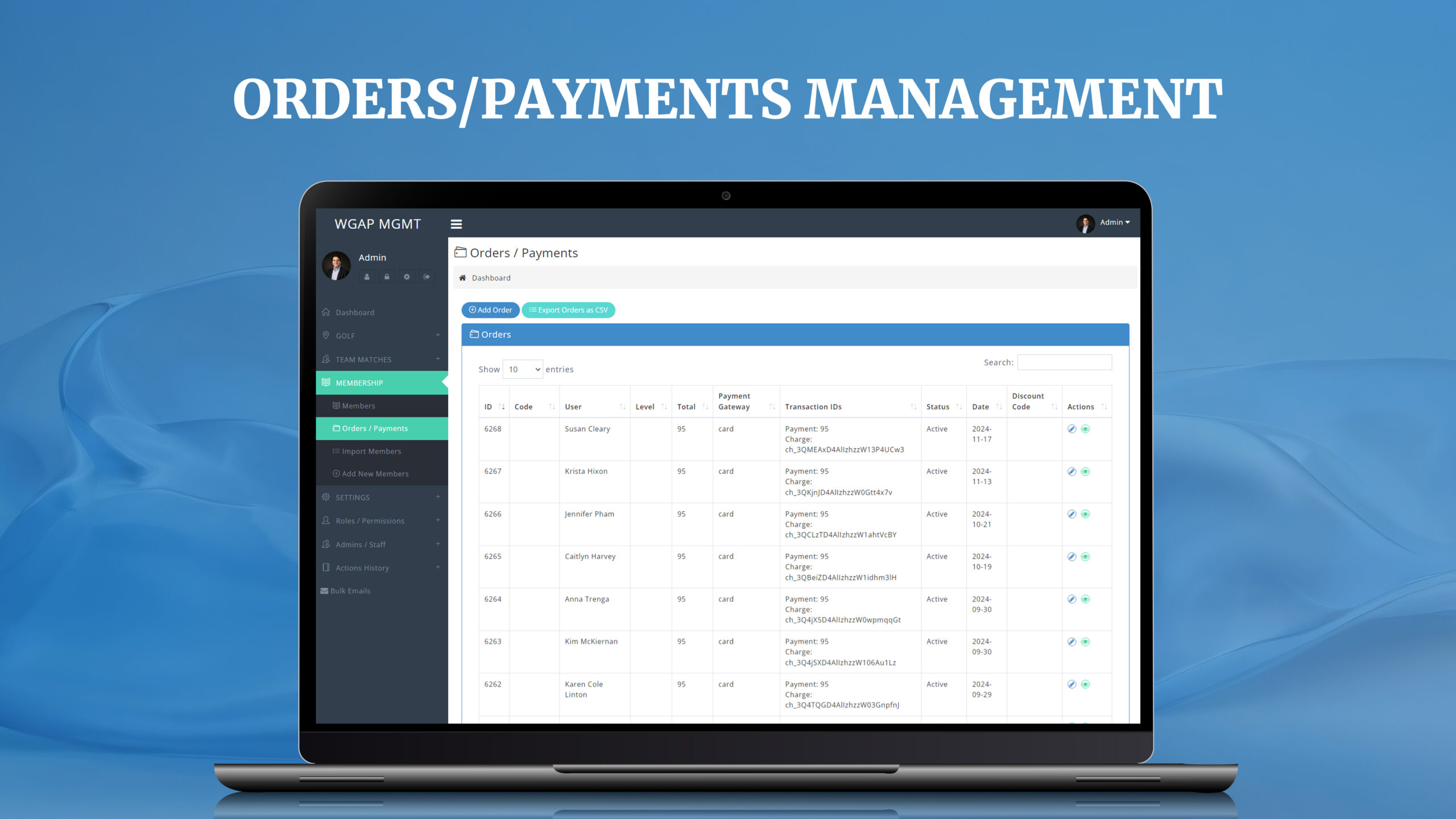
Customizable Service Integration and Email Communication Templates
Admins can configure critical services like Mailgun for email and Stripe for payment processing through a centralized settings module. The feature includes three tabs: general settings for credentials, user registration windows with start and end times, and customizable email templates for open-day booking confirmations. Email customization allows detailed control over headers, fonts, links, and attachments, ensuring professional and branded communication with users.
Role-Based Access Control Features for Secure Admin Operations
Admins can define and manage user roles to control access levels across the portal. The feature includes a role management tab where roles such as Super Admin, Intern, and Club Management Users are displayed with descriptions, permissions, and timestamps. A separate tab allows super admins to assign roles and create new user profiles, specifying titles, descriptions, and permission levels, ensuring precise role-specific access.
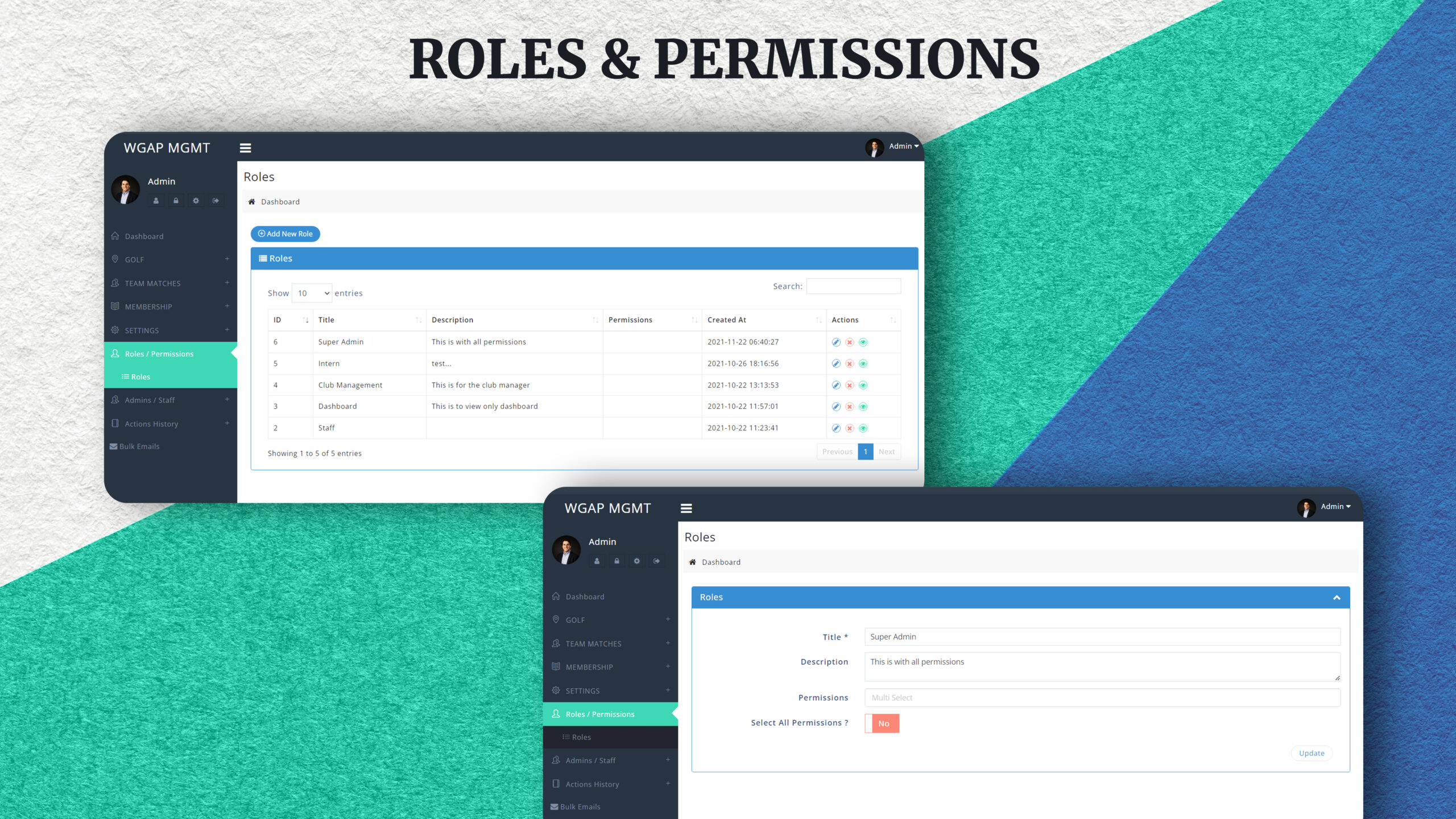
Efficient Management of Backend User Accounts
This module enables the creation, editing, deletion, and viewing of admin and staff profiles, ensuring seamless backend user management. Super admins can view all admins with detailed information, including IDs, names, roles, and creation timestamps. A dedicated tab allows the creation of new admin accounts by specifying name, email, password, club affiliation, and Club Pro member status, ensuring organized staff oversight.
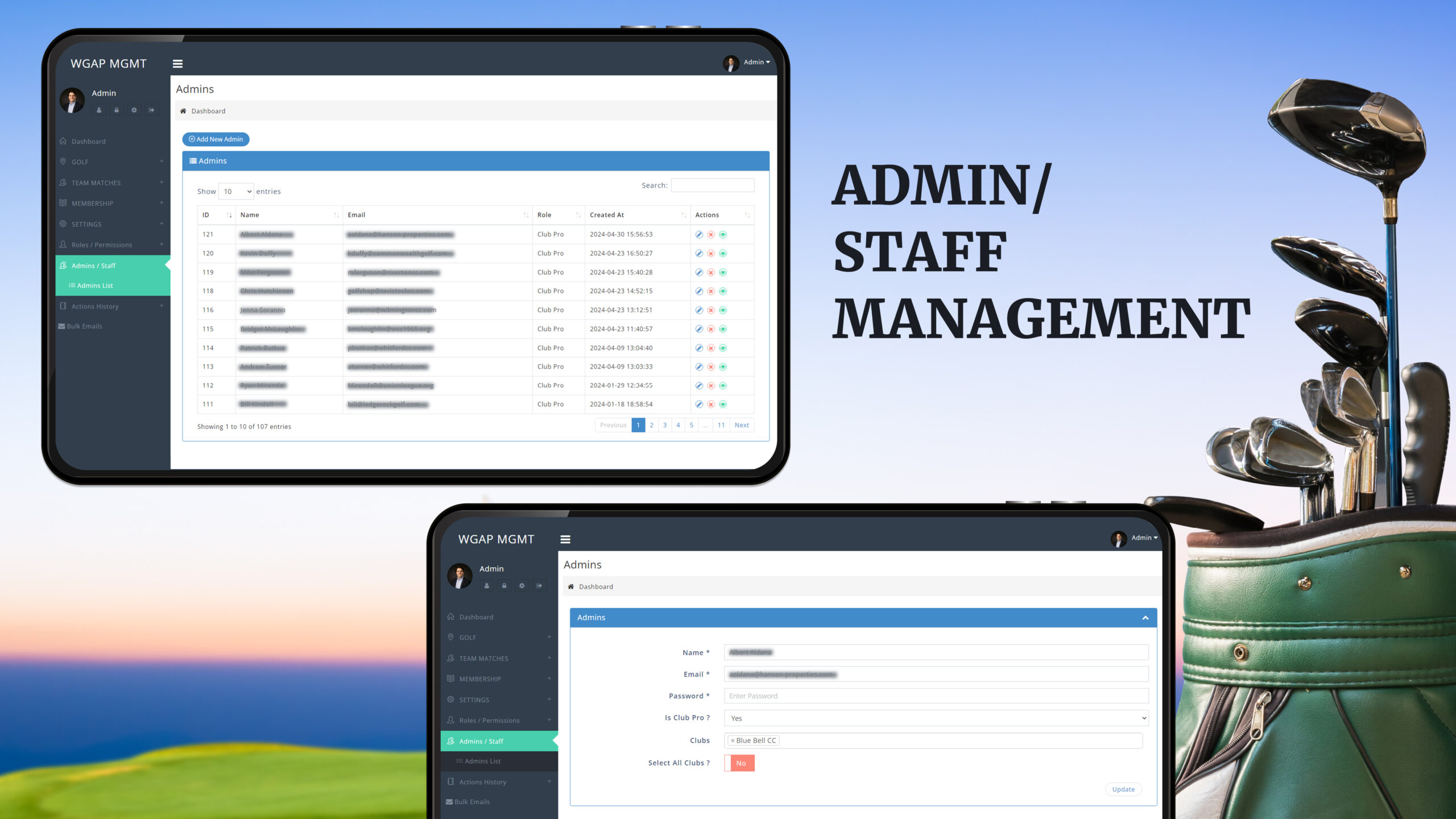
Comprehensive Action History Logging for Admin Activities
Admins can monitor and log all backend operations with precise timestamps, promoting accountability and transparency. The history log details administrative actions, including record creation, role access, and user IDs, along with session duration. This functionality ensures a clear and reliable audit trail for all portal activities.
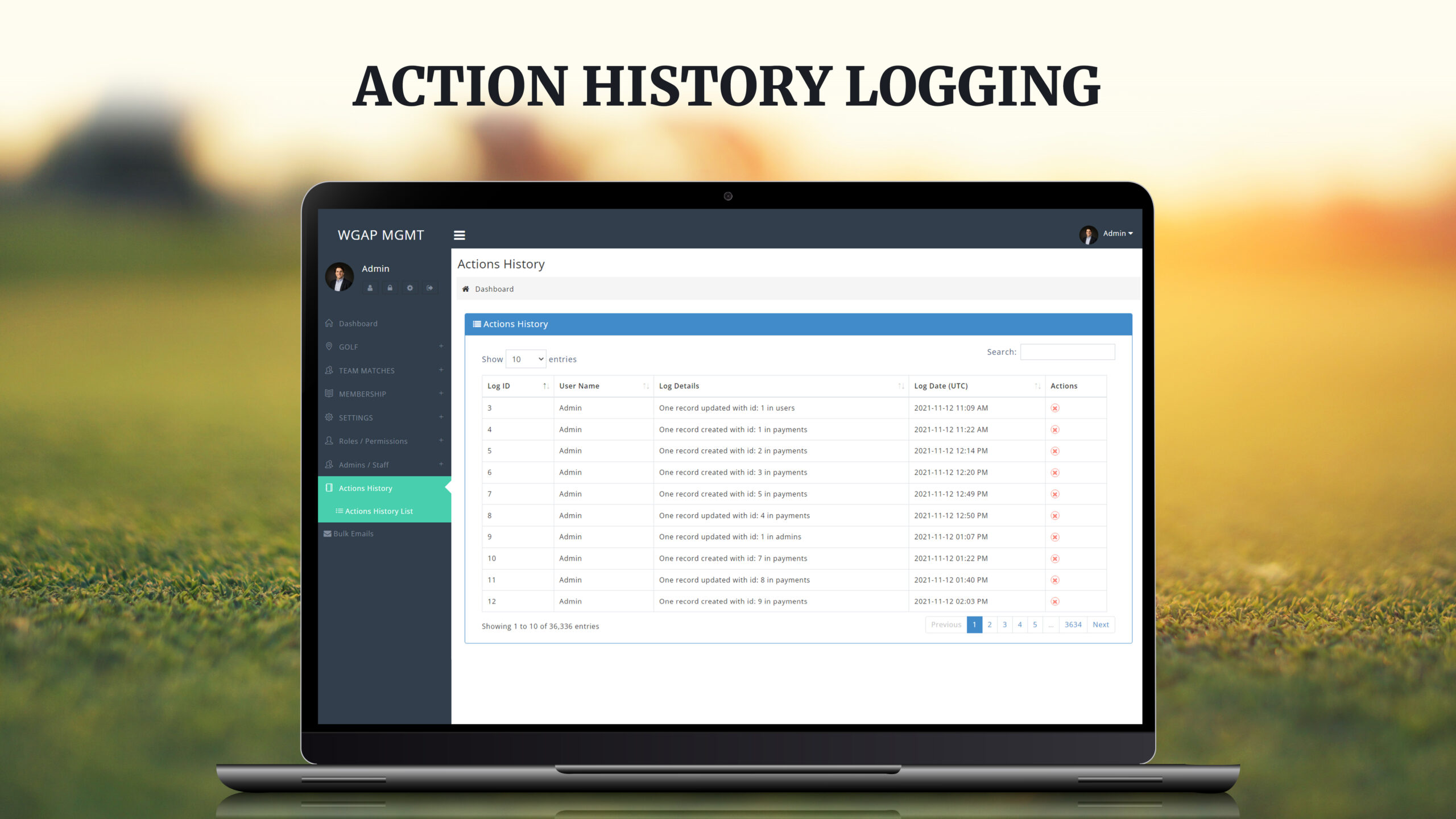
Results & Benefits
- Streamlined WGAP’s operations by providing an intuitive backend portal.
- Simplified management of tournaments, memberships, and financial records.
- Ensured secure, role-specific access to sensitive data.
- Boosted operational efficiency through API integrations and optimized performance.
Outcomes
The WGAP backend portal now operates smoothly, leading to efficient management of golf club operations and member activities. Its modular design caters to our client’s ongoing needs for updates, tournament oversight, and payment processing, delivering user-friendly functionalities that meet all operational demands.
The integration of centralized club data management simplifies record-keeping, while the enhanced scheduling tools for open days and tournaments streamline event coordination. Membership and transaction tracking ensure transparency and accuracy, addressing critical operational pain points. Role-based access and detailed admin activity logging foster security and accountability, while customizable email templates enhance user communication. Collectively, these robust features enable WGAP to handle complex workflows with precision, significantly enhancing its capacity to organize events, manage memberships, and ensure smooth financial operations.
Explore More
The case studies in this section have been handpicked to showcase our best design and development projects. Each case study shows how we used industry-leading practices to transform our client’s idea into a working project.
© 2025 Dynamologic Solutions All rights reserved.



